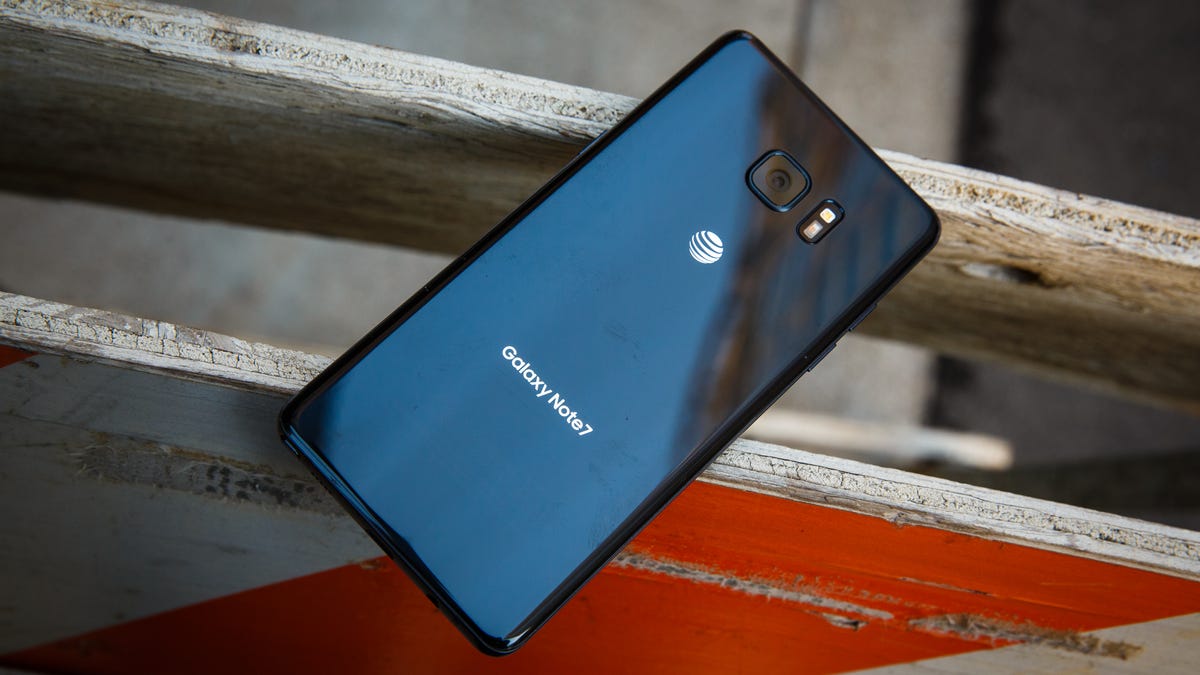Samsung's battery blowup makes me more likely to buy the next Note -- not less
Commentary: The Note 8 will be a safer phone, because it has to be.

Samsung 's exploding Galaxy Note 7 -- a global fiasco -- makes me more likely than ever to buy a Samsung phone.
Yes, you read that right. Faced with a company that sold a phone which could have literally burned down my home, then rushed a replacement phone that was also prone to catch fire, I still wouldn't hesitate to choose Samsung for my next device. Just the opposite, in fact.
Sure, Samsung screwed up badly, and not everyone's ready to forgive. You don't recall three million potentially hazardous phones without pissing off more than a few customers.
But here's the thing: Samsung is now the only modern smartphone maker that's been through a battery disaster. It's the only company that can't afford to let anything like this happen ever again.
I'm not praising Samsung for the way it handled this fiasco, or for finally figuring out why its phones exploded twice. In fact, there's no specific thing Samsung's announced that makes me feel better about buying a future phone -- not the company's new eight-point battery test, not the three independent firms that isolated the failure to the batteries, not even the four new battery testing facilities and 700 engineers Samsung says it diverted to this issue alone.
I'm simply pointing out that in order to survive, the company has no choice but to do better. So the company will do better -- and that means Samsung phones are about to become some of the most carefully inspected phones on the shelf.
I definitely like the idea of a smartphone that's spent more time in testing before it arrives in my hands. Who knows what other quality control issues Samsung might find and fix while it's searching for battery bugs?
More importantly, Samsung now has a head start on safety standards that might have prevented this sort of battery blowup before it even started.
Flaming hoverboards destroyed some peoples' bedrooms and even homes in late 2015. Experts agreed there was no safety standard for them at the time.
In my reporting on exploding hoverboards and flaming phones, I heard something surprising from many of the experts I interviewed: There's no particular safety standard, no required test that keeps manufacturers from putting a potentially dangerous battery inside a phone. Companies can and often do get their gadgets certified by testing firms like UL, but it's totally optional.
With the pressure on to cram ever-larger batteries into ever-smaller compartments and no satisfactory standard for safety, you could even argue that battery explosions were inevitable. But Samsung got there first. Samsung will be the first to successfully pick up the pieces. I know Samsung has no choice but to do it right away.
It could be a classic case of "what doesn't kill you makes you stronger": Even though the company may lose $5 billion cleaning up the Note 7 mess, profits are actually up.
And though we should rightfully rake Samsung over the coals for selling the flawed Note 7 to begin with, and again for screwing up the batteries a second time with faulty replacement phones, Samsung did do one thing that impressed me as a consumer: it didn't hesitate to recall every single Galaxy Note 7 sold.
Recalls don't always work that way. Often, a company will spend weeks or months investigating the issue and narrowing it down to specific batches of devices. We could have all been checking our phone's serial numbers or IMEIs, instead of getting a clear message that every single Galaxy Note 7 needed to be returned.
Samsung's new 8-point battery test. As a journalist, I love details like this. As a consumer, I don't care.
Sure, that might have eventually bitten Samsung in the ass, because of how abnormally high the battery failure rate actually was, even compared to other battery recalls. But as a smartphone buyer, I saw this company step forward and say "Send 'em all back, we'll eat the losses, we're going to take care of you," and I haven't seen any other phone manufacturer behave that way. Of course, they haven't had their back against the wall the way Samsung did.
Say what you will about whether Samsung spoke to the right government agencies in the proper order, or how long it took for the company to get its potential fire hazards off shelves and out of people's homes. As a smartphone buyer, I don't necessarily care.
To me, Samsung now looks like the safest bet for my next phone. If I don't wind up buying a Galaxy S8 or Galaxy Note 8 for myself this year, safety won't factor into it at all.
CNET Magazine: Check out a sampling of the stories you'll find in CNET's newsstand edition.
Batteries Not Included: The CNET team shares experiences that remind us why tech stuff is cool.

